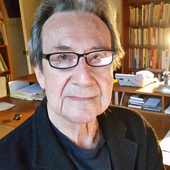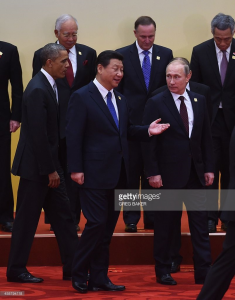Burundi edges closer to the abyss in 2016
By Rene Lemarchand
In this short piece, extracted from The Conversation, (December 12th, 2016), Lemarchand, Professor Emeritus and leading authority on ethnic violence in Central Africa, the Great Lakes in particular, serves what is clearly an early warning on Burundi – Editor
Burundi’s President Pierre Nkurunziza was hardly a household name. That was before he turned his country into a hellhole following his unconstitutional decision in 2015 to run for a third term.
Burundi is an overpopulated and immensely corrupt state. It shares much the same ethnic map as Rwanda. But it hardly attracted a fraction of the attention claimed by its neighbour to the north during and after the 1994 genocide. If anything, its principal claim to fame was that it successfully managed its transition to multi-party democracy after a vicious 10-year civil war.
The key to this remarkable achievement was a power-sharing arrangement. The arrangement gave a share of executive and legislative power to the two principal, and once bitterly antagonistic, ethnic communities, the Hutu and Tutsi. The Tutsi account for approximately 30% – this is a guesstimate as no reliable recent census figures are available – of a population of some ten million.
At first, the experiment seemed highly promising. It was formalised in the Arusha accords of 2000, and later enshrined in the 2005 constitution. It offered a striking counter-example to Rwanda’s tragic destinies. It all went well until the failed coup of May 13 2015. The coup was a desperate attempt by a group of dissident officers to seize power by force. The light was shone on the regime’s savagery. The precipitating factor was Nkurunziza’s decision to run for a third term, in violation of the constitution.
The Burundi enigma
Burundi today seems dangerously close to a Rwanda-like scenario. The Tutsi minority was targeted once again as a potential victim of genocidal violence. On closer inspection, the events of 2016 reveal a more ambivalent state of affairs. A significant number of Tutsi elites, civil servants, army men, journalists and human rights activists have been killed by pro-regime elements. Scores of Tutsi women have been raped.
But the same could be said of the hundreds of Hutu victims. One can’t ignore the large number of extra-judicial killings committed by anti-Nkurunziza rebels. These are opponents of Nkurunziza and both Hutu or Tutsi are targets.
Since 2015, at least 1,000 people have been killed. Thousands of others have been arbitrarily arrested and tortured. An estimated 330,000 have fled their homeland to neighbouring states.
But we have to be cautious in speaking of a straight Hutu-Tutsi confrontation. The conflict is not strictly speaking ethnic. It’s political. It revolves around the pro- and anti-Nkurunziza’s third term option.
At the heart of the Burundi enigma lies a paradox. This is the power-sharing formula devised in the Arusha accords – the critical element behind the transition to democracy – and it still holds. Nonetheless, everything points to a diffuse yet distinctly anti-Tutsi political climate.
Hutu takeover
Today 60% of government positions and parliamentary seats are controlled by Hutu and 40% by Tutsi. The army, as prescribed by the constitution, is evenly split between Hutu and Tutsi, each accounting for 50% of the officer corps and troops. Left out of the accounting, however, is:
- The growing number of Hutu hard-liners in positions of authority
- The presence of parallel security organisations under tight Hutu control
- The systematic clamping down on civil society organisations, and
- The climate of pervasive fear created by the omnipresent Hutu-dominated youth militia known as imbonerakure.
Burundi is seen by many as alarmingly close to the edge of the abyss. Given the salience of such informal control mechanisms this is hardly surprising. Such is the consensus of most Burundi experts. Their views are corroborated by the International Federation of Human Rights Leagues report, the 2016 report of the UN High Commission for Human Rights, many Human Rights Watch reports and the international media.
A bleak future
But what adds to the sense of pessimism is such actions as the appointment of notorious hard-liners to key positions. For example, General Evariste Ndayishimiye’s appointment as the secretary general of the Conseil National pour la Défense de la Démocratie-Forces pour la Défense de la Démocratie – the current ruling party in Burundi. This leaves few doubts about the intransigence of the regime. He is known to be a tough-minded general and viscerally anti-Tutsi.
Ethnicity is becoming more noticeable as a policy issue. A growing number of Tutsi elements have been excluded from key government positions. In February of 2016 some 700 Tutsi troops were forced into early retirement. The police force and the ruling party’s youth wing, now undergoing regular military training, have become virtually mono-ethnic, and so too the security units operating alongside the normal channels.
Perhaps even more ominous is the outrageous language used by the president of the Senate, Reverien Ndikuriyo. Some of his utterances have been reminiscent of the coded euphemisms employed during the Rwanda genocide as synonyms for killing Tutsi. He even made reference to “going to work”, a metaphor for killing.
It is easy to see why the thinly veiled anti-Tutsi posturings of the Nkurunziza regime should be seen by many as payback for the 1972 tragedy. Some 200,000 Hutu were killed at the hands of a predominantly Tutsi army. Hundreds if not thousands of Tutsi civilians were killed by Hutu insurgents.
The prospects for reconciliation are bleak. Formal gestures by the government to nudge the legitimate opposition parties to join an intra-Burundi dialogue have consistently failed. As for the weak and fragmented rebel forces in exile, nothing short of a miracle would enable them to capture power in the foreseeable future.
There have been repeated attempts by organisations like the African Union to impose sanctions aimed at stopping atrocities and prepare the ground for the presence of an international protection force. These efforts have not been successful. Internal rifts in the UN Security Council between supporters of Nkurunziza, like China and Russia, and their opponents ensured the failure of a concerted diplomatic initiative. Burundi’s planned withdrawal from the international criminal court in response to pressure to investigate the country’s human rights situation stands as another ill omen for the future.

Prof Rene Lemarchand




























